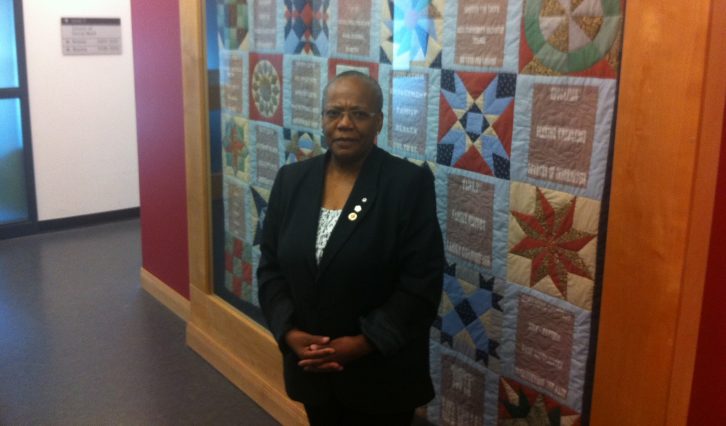Politics
Wanda Thomas Bernard on her first weeks as a Canadian Senator
Bernard hopes to advance African-Canadian issues on Senate

caption
Sen. Wanda Thomas Bernard is one of two Nova Scotians appointed to the Senate last month.
caption
Sen. Wanda Thomas Bernard is one of two Nova Scotians appointed to the Senate last month.Wanda Thomas Bernard is already figuring out causes she would like to champion as a Canadian Senator.
Last month, Bernard, a professor of social work at Dalhousie University, was one of 21 new senators appointed by the Governor General of Canada on the recommendation of Prime Minister Justin Trudeau. More than 2,700 people applied following a call for applications. Daniel Christmas, senior adviser for the Mi’kmaq First Nation of Membertou, was also selected to represent Nova Scotia.
There has been a lot of excitement among Bernard’s family, friends and work colleagues —especially from those in her home community of East Preston.
“I think part of the excitement is that it’s a merit-based appointment; it’s not a political appointment … so that community owns it, claims it and affirms it,” says Bernard. “And the fact that I was appointed because of my work, there’s that extra layer of excitement.”
There have been no big surprises so far for Bernard, but she says something stood out to her during Senate orientation: “The lack of visibility around the distinct place of African-Canadians.”
The orientation covered the history of the Senate, including the first Indigenous person and first woman to be appointed to the Senate, as well as information on the Persons case, which opened senate nominations to women in the late 1920’s.
But Bernard knew something was still missing from the presentation.
“So I’m waiting to hear about the first person of African descent who was appointed to Senate and it wasn’t there,” Bernard says. “So I took the opportunity to raise that.”
In 1984 Sen. Anne Cools, who still sits on the Senate, was the first black senator appointed in Canada.
“This is very recent history,” says Bernard, “And I think that’s a history that needs to be firmly included when you’re doing the history of the Senate.”
While Bernard isn’t sure what specific work she’ll do as a senator, there are topics she hopes to address.
The number of shootings of young black men in Halifax has been called a public health issue by the African United Baptist Association. As an academic, Bernard has done extensive research on black men, the violence of racism and the criminal justice system.
“I think that’s an issue that ought to have some national attention,” she says.
The place of African Canadians in Canadian history is “pretty invisible” according to Bernard, so she would like to bring more attention to that issue as well.
Bernard also has an interest in social justice issues and women’s rights issues. She says she’d like to be part of the Senate’s human rights committee.
“She brings a much needed perspective to the Senate and I am sure she will make a valuable contribution to the institution,” Nova Scotia Sen. Jim Cowan said in an email. “She has been an effective advocate for a number of important causes during her career and the Senate will afford her a platform to continue that work.”
As a Senator, Bernard commutes between Nova Scotia and Ottawa weekly. A senator’s primary residence is required to be in the province they represent.
Though this makes for a busy schedule, Bernard says she is “very committed” to her work at Dalhousie and will continue to teach for the rest of the academic year. She plans to take early retirement at the end of July. She’d like to continue to have some association with Dalhousie, if it’s approved by the Senate ethics commissioner.
For Bernard, one of the most gratifying things about her appointment is being able to share the excitement with her grandsons. She says that although they’re too young to fully understand what’s going on, they have a sense that it’s important. They were among her guests at Parliament Hill during the swearing in ceremony Nov. 15 and 16.
“For the next week, everyone that I talked to talked about my grandsons and how proud they seemed to be,” Bernard says. “They’re five and seven … what a legacy for them.”

